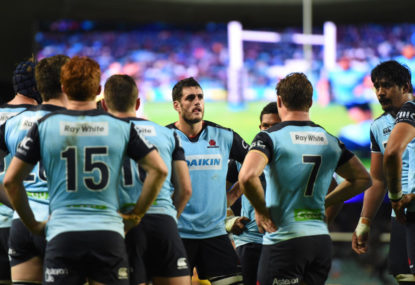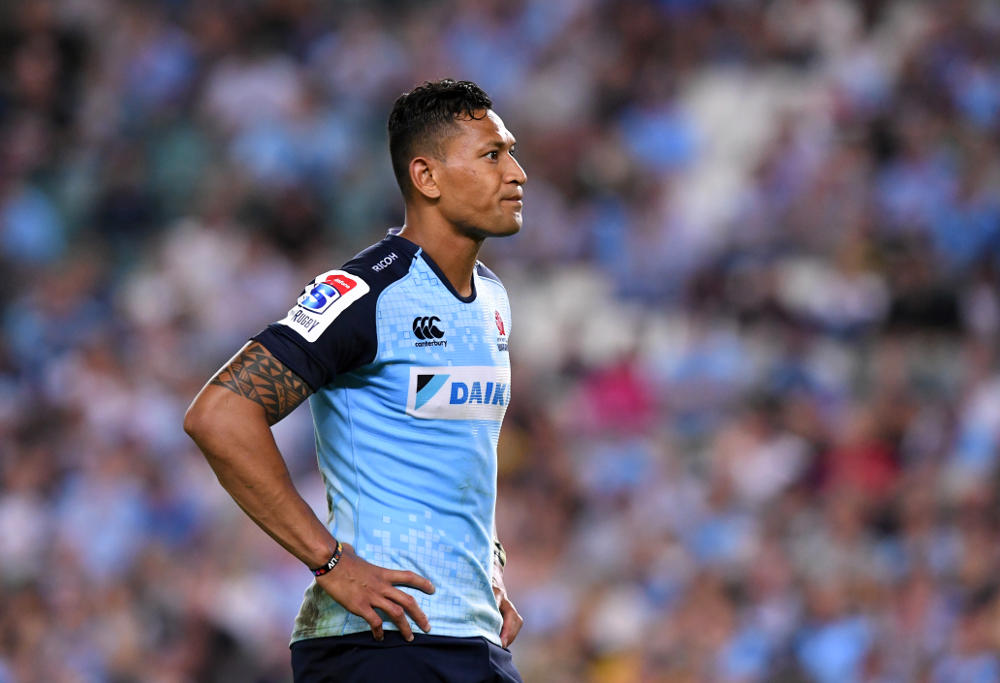Ryan Smith delighted to be off the nudie run after scoring in 50th cap for the Reds
It was a memorable night in more ways than one for the Queensland forward.

I came to Australia in 1996. By the time Rod MacQueen had led the Wallabies to a second World Cup I was almost ready to head back to New Zealand I spent that much time hearing how ‘those All Blacks used to be good didn’t they?’
Anyone with a passing interest in rugby was prepared to debate the strengths of the Brumbies over the Crusaders.
The Queensland Reds had been a large part of the beginnings of the Super Rugby concept, the Brumbies had come from nowhere to frighten any Kiwi and looked as if their programs were strong enough that they would into perpetuity.
The Waratahs always lurked from the base of union strength that was New South Wales.
In only twenty years we’ve reached this point.
The expansion of Super Rugby has obviously got a great deal to do with money, it is ingenuous to think otherwise. But then what in world sport hasn’t these days?

And a sport that stagnates will eventually die.
The NRL is used as an example of sport in Australia with a very strong club base, very well matched teams making up nearly all of the games that constitute each round.
But when it comes to trying to develop that game in any new direction the mismatches that ensue are eye-wateringly one sided.
This is a sport where the World Cup will be a competition to see who gets to play Australia, as always. Hopefully Ian Rubin is available to captain Russia again because he is the only footballer who can spell Vladivostok.
Super Rugby has taken their competition across the Southern Hemisphere and the competition has suffered, this weekend’s matches are a series of foregone conclusions.
But the lack of classic contests this year probably has as much to do with the dearth of quality in Australian rugby union at the moment as anything else.
Australian teams are not competitive with their New Zealand counterparts, or are sporadically, and the competitiveness is diminishing.
Australian rugby union struggled in the late ’90s with all the things it faces now, chiefly the fact that it is a lesser sport in a market place that is dominated in turn by rugby league and AFL, and exists in a country that is extremely strong in sports that traditionally exist in other seasons, cricket predominantly.
The one thing that it probably didn’t contend with to the same extent back then is the explosion of interest in soccer.
Is it the fact that a lot of the talent that could have been available to the Australian Super Rugby teams is lost to dreams of being the new Berat Berisha, in the same way union lost Wally Lewis, or perhaps a Gary Ablett?
The All Blacks remain the pinnacle for so much of the young sporting talent of New Zealand, and the Super franchises the stairway there.
I don’t know anything of the quality of the coaching of Australian rugby union at lower levels, which seems to be being blamed for some of the lack of quality of the current crop of players.
But maybe it is more to do with simply who is available to them.
Getting rid of Australian franchises will mean that even less potential talent is available in the Australian system, young players may well drift back into rugby league, or more likely follow their dreams overseas.
Expansion is a difficult process and will take time, lessening Australia’s part in the Super Rugby system seems like the first step towards a future where the remaining franchises become the new Jaguares, while most young Aussies play for Japanese teams or are on the Roosters roster.